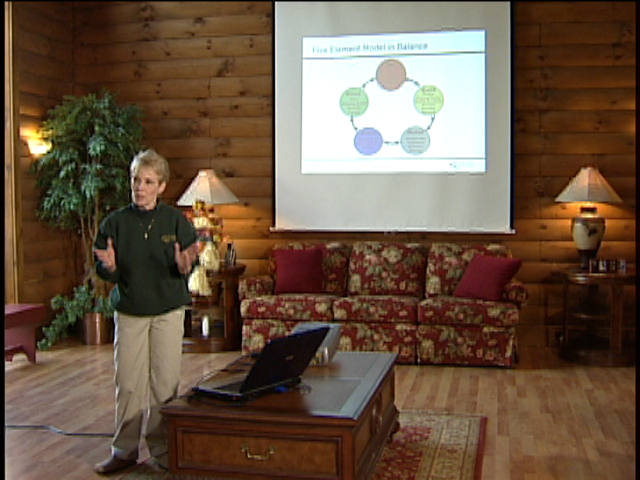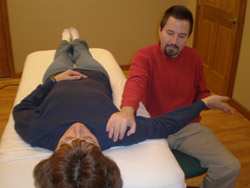The objective of our holistic addiction and mental health rehab is to treat the whole person. Our professional team meets to discuss the needs of each resident and designs a holistic alcohol treatment or drug treatment plan that addresses the physical, mental, emotional, and spiritual aspects that require attention.
An individual’s needs for holistic rehab are addressed through individual and family/marital counseling, group discussions, recovery education, lifestyle coaching, spiritual direction, and holistic detox as well as through the healing environment created by St. Joseph Institute. Holistic addiction and mental health rehab strive to address not only addiction but also any other issues that impact a person’s quality of life.
At St. Joseph Institute, we offer a wide variety of holistic modalities, including yoga, weekly Tai Chi classes led by a licensed therapist, and an aqua therapy bed. We also teach classes about using mindfulness and meditation to reduce stress, pain, and cravings, and provide recreational time where clients can relax in the sauna, hot tub, and pool.
Aspects of a Holistic Approach to Addiction Recovery
- The Physical Aspect includes an evaluation of the physical body to reveal important medical or structural concerns.
 We want to address current medical conditions, as well as structural misalignments and imbalances that may be contributing to the addictive process or any co-occurring disorders. Holistic addiction and mental health rehab allow us to use natural methods, as well as modern medical interventions, to restore and re-balance the body, thus treating issues that might otherwise go undetected and contribute to patterns of relapse.
We want to address current medical conditions, as well as structural misalignments and imbalances that may be contributing to the addictive process or any co-occurring disorders. Holistic addiction and mental health rehab allow us to use natural methods, as well as modern medical interventions, to restore and re-balance the body, thus treating issues that might otherwise go undetected and contribute to patterns of relapse.
- The Mental Aspect includes a vast array of counseling assessment techniques and interventions from various approaches, including:
- Psycho dynamic – the relationship between the various parts of an individual’s personality with respect to the process of human development, focusing on the needs that were and were not met, as well as the way developmental crises were resolved or remain unresolved.
- Cognitive/Behavioral – the study of the interrelationship between thoughts and behaviors. That is to say we learn how beliefs, attitudes and rules influence a person’s behavior and how these core beliefs can be identified and modified to improve a person’s well-being and ability to function.
 Spiritual/Humanistic – the belief in the basic goodness of human beings as creatures made in God’s image. Each person has an inherent desire to achieve higher levels of functioning through development of their relationship with God.
Spiritual/Humanistic – the belief in the basic goodness of human beings as creatures made in God’s image. Each person has an inherent desire to achieve higher levels of functioning through development of their relationship with God.- Transpersonal – an approach that transcends the ego-centered, humanistic view and considers the deeply spiritual aspects of the human condition. This approach acknowledges what is seen and what is unseen, what is known consciously and what is unknown, what is temporary and what is permanent.
- Systemic – the idea that all things exist within a system. An individual is part of a family that is part of a community and so on. Relationships are part of living in a system. What occurs in one set of relationships can influence what occurs in other parts of the system. Rather than seeing a person as an isolated entity, systems theory looks at the role each person plays in contributing to the whole, and how changes in individuals impact the whole system.
- The Emotional Aspect includes gaining an understanding of each person’s emotional maturity and capacity to function in various relationships and environments. Particular attention is paid to emotional suppression, dysregulation of emotion and emotional wounds sustained throughout the person’s history. Treatment interventions focus on healing old wounds as well as the poor behavior patterns that have evolved as a result of those wounds. Residents at our holistic addiction and mental health rehab in Pennsylvania are introduced to methods of emotion regulation and healthy emotional expression.

 We want to address current medical conditions, as well as structural misalignments and imbalances that may be contributing to the addictive process or any co-occurring disorders. Holistic addiction and mental health rehab allow us to use natural methods, as well as modern medical interventions, to restore and re-balance the body, thus treating issues that might otherwise go undetected and contribute to patterns of relapse.
We want to address current medical conditions, as well as structural misalignments and imbalances that may be contributing to the addictive process or any co-occurring disorders. Holistic addiction and mental health rehab allow us to use natural methods, as well as modern medical interventions, to restore and re-balance the body, thus treating issues that might otherwise go undetected and contribute to patterns of relapse.